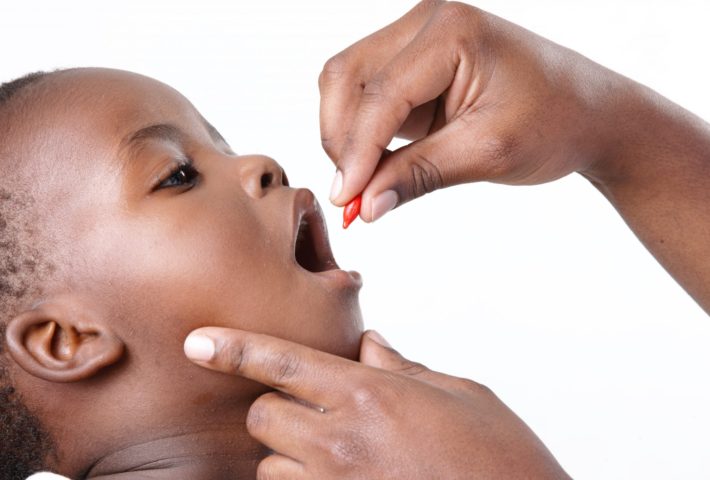Modeling of Vitamin A Supplementation in Kilifi, Kwale and Siaya Counties in Kenya
August 03, 2019
Vitamin A is an important nutrient required for the growth and development of children and combat infections. It helps in the development and repair of bones, teeth, muscles and tissues, development of proper eyesight as well as healthy growth of soft membranes and skin cells. Vitamin A deficiency is thus detrimental to the health of children as it can result in visual impairment and increase the risks of illness. However, research by WHO shows that about 190 million preschool-age children mainly from Africa and South-East Asia suffer from Vitamin A deficiency. In Kenya, it is estimated that 9.4% of pre-school children suffer from Vitamin A deficiency. Most Countries from the affected regions including Kenya curb this deficiency by offering vitamin A supplements to affected areas as public health intervention programs. In Kenya, vitamin A supplementation is administered from six months into infancy.
The aim of this study is to identify and examine the factors influencing Vitamin A supplementation campaigns in Kenya using descriptive and predictive data analysis methods.
Descriptive and predictive analysis of the data using supervised machine learning revealed the following about Vitamin A supplementation in Siaya, Kwale, and Kilifi:
- Place of supplementation is one of the major factors affecting the rate of Vitamin A supplementation. This is partly because of the long distance between the caregiver’s home and the nearest health facility. According to the analysis majority of the supplementations took place at home which involved the Community Health Workers moving from one home to another administering the supplements. Moreover, Majority of the caregivers are not employed and therefore lack enough capital to for child healthcare support including buying supplements. Therefore more efforts should be directed towards ensuring that there are enough human labor and resources to reach caregivers at their homes.
- The more informed the caregivers are about the benefits of the Vitamin A supplementation the more likely they are to participate in the exercise. Therefore, there is need for increased civic education especially for young caregivers or mothers about Vitamin and its benefits.
- Communication is a key determinant of Vitamin A supplementation. Caregivers should be well informed about the campaigns through strategic community mobilization efforts.
- Religious and cultural beliefs hinder the administration of Vitamin A supplementation hence the need for campaigns against any unfounded religious and cultural beliefs.
Author About
Eugene Oduma is a Digital Strategist at Pryton Technologies and volunteers as content manager at Ai Kenya. He has been involved several research projects around health and social development in Kenya and is interested in augmenting healthcare services using technology particularly machine learning and data science. You can reach him on eugene[at]kenya[dot]ai
Data Source
Data was provided by Dr. Shadrack Oiye who conducted the main research on Vitamin A Supplementation and Deworming determinants for Children aged 6-59 months.
Full report available for download here :
Any feedback, additions, and possible collaborations are welcomed.


